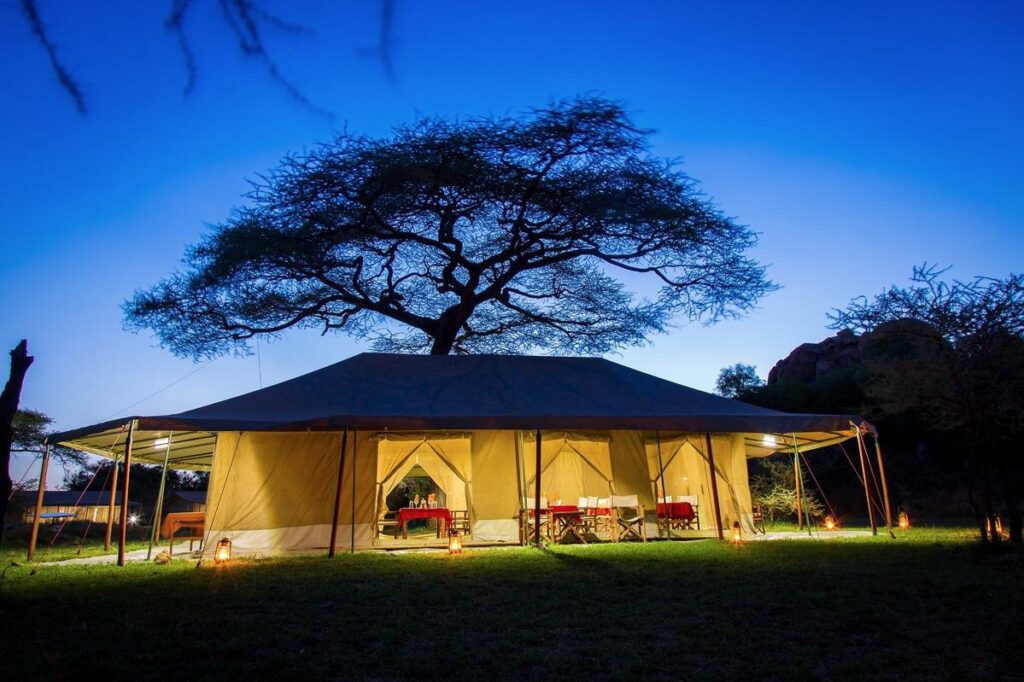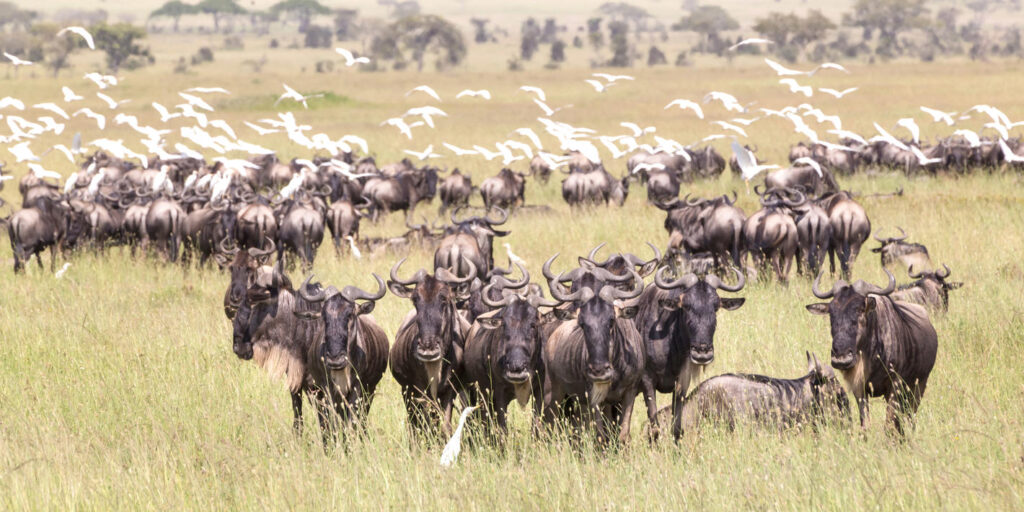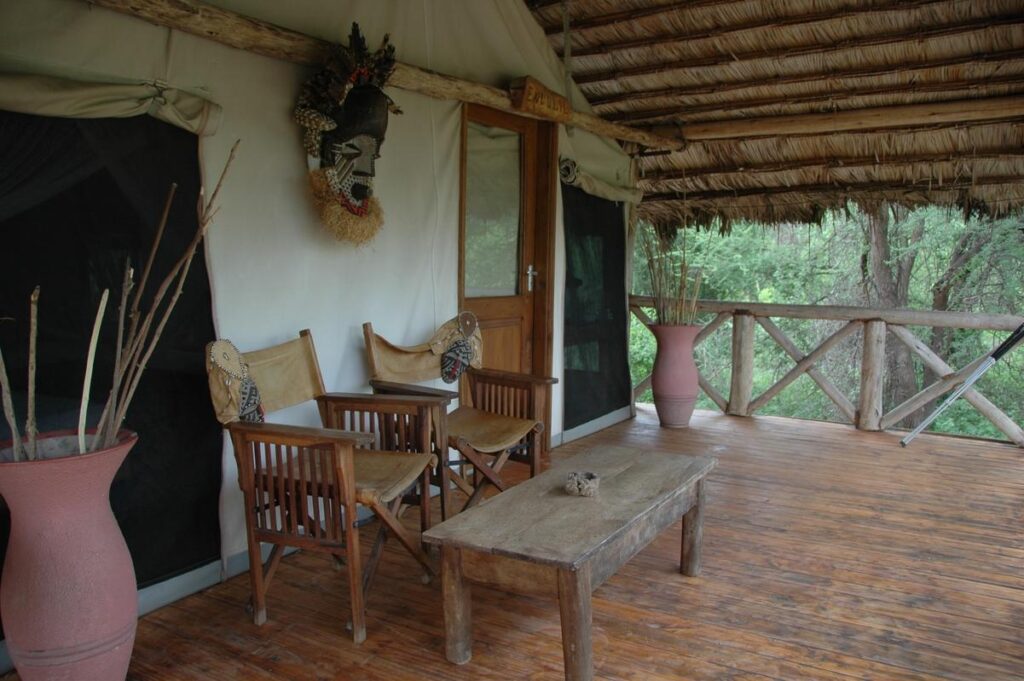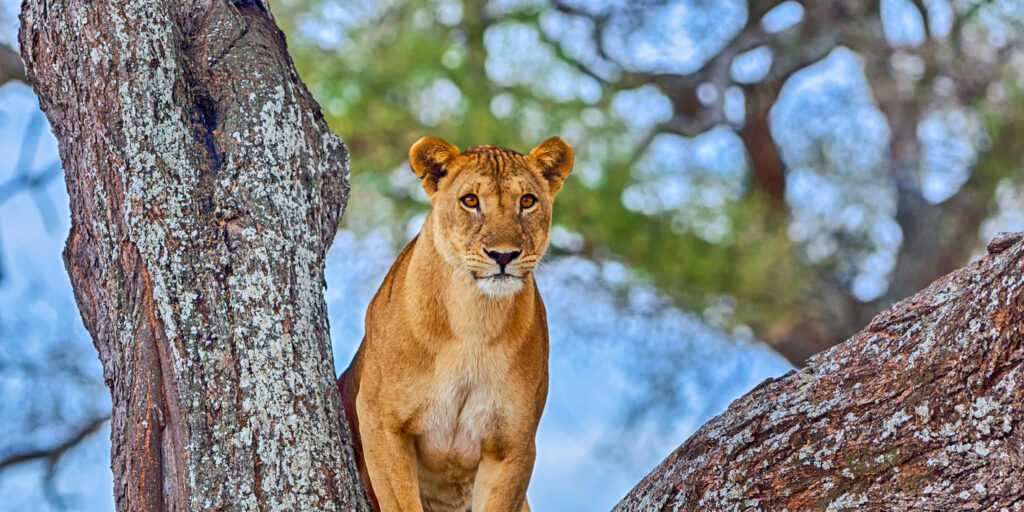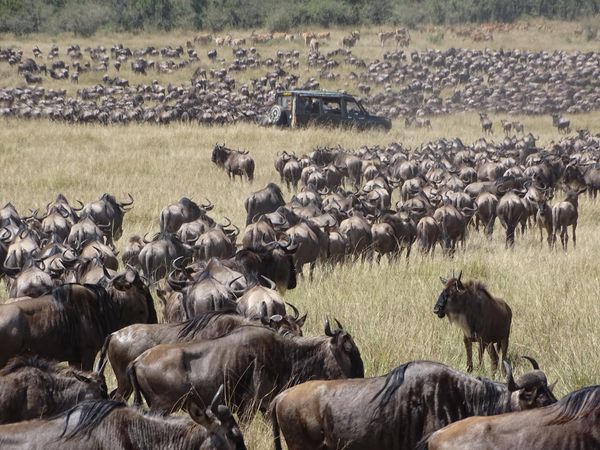
The Great Migration
If you plan to only have one dream trip to Africa, then this is the one you should go on!
Nairobi | Samburu National Reserve | Ol Pejeta Conservancy | Nakuru |
Masai Mara | Arusha | Tarangire National Park | Seronera | Serengeti National Park | Karatu | Ngorongoro Crater
15 days/14 nights | $8995/person | 4 – 4.5 star
View the February 1 2025 itinerary to whet your appetite
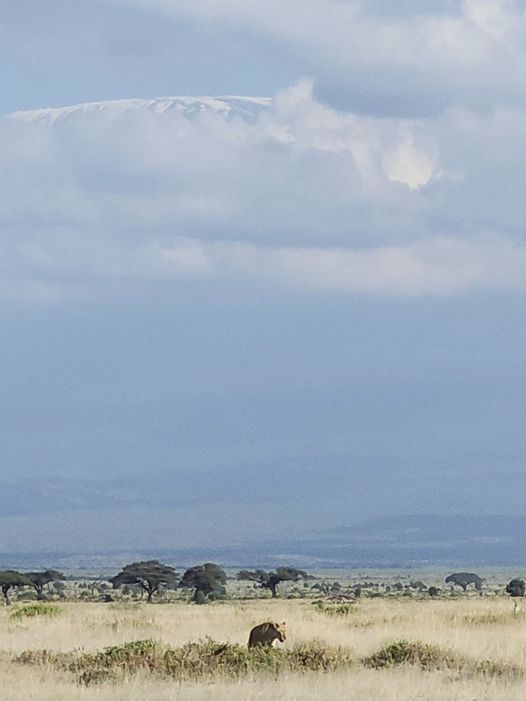
Your trip will begin in Nairobi, Kenya where TIA Safaris will meet you at the airport to take you to your hotel. From the moment you arrive until it’s time to head home from Kilimanjaro International Airport, Tanzania you can expect to be well fed and thoroughly entertained. Our staff will expertly manage every detail.
Please send us the completed TIA Booking Form and Conditions to reserve your adventure.
WELCOME PACKET For Kenya and Tanzania
Welcome to your TIA Safaris East Africa trip!
We just wanted to give you an overview of what you may need to know for your upcoming trip with us!
As a trip can be a bit overwhelming we want to provide you with some information that will help you prepare for your trip. Africa has many wild and wonderful places and there are some things you will need to know and some things you will need to bring to make sure your trip there goes as smoothly as possible:
Arrival Airports
If you are starting in Nairobi, you will be flying into Jomo Kenyatta International Airport (NBO). If you are beginning your trip in Tanzania, you will be landing at Kilimanjaro International Airport (JRO). If you are beginning in Uganda, you will be flying into Entebbe International Airport (EBB).You will be met at the airport and transferred to your lodging.
Arriving Early
If you are beginning your trip in Nairobi, it is strongly recommended to arrive a day early so that you may partake of the Sheldrick Elephant Orphanage and/or the Giraffe Sanctuary. These are wonderful places to visit and a great way to start your trip. As most trips begin on a Saturday, you would have to be at the Sheldrick EO by 11am for the feeding of the baby elephants. You can arrange a taxi at the hotel to take you out for the day including a stop for lunch.
Money:
Money is accessible in most places we will go. It is a good idea to bring American dollars with you as they are still the easiest medium of exchange around the places we travel. Most Bureau de Changes and banks will also take Euros and English pounds. That being said, it is not necessary to bring your whole trip’s worth of these currencies.
American dollars are the best means of exchange and you will find that many stores, restaurants, and the lodges you are staying at will take American dollars. That being said, it is important to have at least some of the local currency on hand. You may obtain local currency from an ATM at the airport as soon as you arrive.
Please note that American bills must be above the date 2013, particularly the denominations 20s, 50s, and 100s. This is due to the fact that there was a great deal of counterfeiting American dollars going on in Africa before this date. Bills will not be accepted otherwise.
Credit Cards are also good to have and most stores, curio shops, and restaurants will take them. The best cards are Visa and Mastercard (although there are some places where Mastercard isn’t as accessible as Visa). That is not to say that other cards do not work, but these other two seem to be the most effective.
Traveler’s checks are not a bad idea and obviously the safest. It will take longer and be a little more difficult to process them along the way, however. Most places we patronize will not take traveler’s checks and you will have to exchange them at banks usually with a fee attached.
Here is a list of Monies from various countries equivalent to 1 US Dollar:
As of October, 2024 (currency prices will fluctuate)
Listed with the monies are some common products to demonstrate prices.
(These prices are just a general idea and may also change by day or place purchased)
Kenyan Shilling: $1 = 128.50 Shillings
Beer: 348 Shillings
Toilet paper: 58 Shillings
Pillow: 670 Shillings
Tanzanian Shillings: $1 = 2690.00 Shillings
Beer: 5000 Shillings
Toilet paper: 1500 Shillings
Pillow: 10000 Shillings
Ugandan Shillings: $1 = 3655.59 Shillings
Beer: 10,000 Shillings
Toilet Paper: 3000 Shillings
Pillow: 14000 Shillings
What to bring:
It is important to recognize there are many things you can buy when arriving in Africa. Obviously the most important items are your passport, your necessary visas (One can check with the embassies of each country you are visiting to see if a visa is required for your country of origin), and monies. Electronic goods should be purchased at home as they are usually significantly more expensive in Africa.
Such things as cosmetics can also be purchased whenever the need should arrive. Particular cosmetics that people use should be brought from home as Africa may not have your exact specie of shampoo, soap, facial cream, etc.
Here are other things that you will need to maximize your experience of the trip:
1 Flashlight, preferably a headtorch or headlamp
2 Insect repellant
3 Rain jacket or poncho (check with TIA Safaris if this is necessary for your trip)
4 At least one set of warm clothes. (It can get quite chilly in some places we will be staying)
5 One pair of shoes suitable for walking, hiking, and trekking (For gorilla trekking, high-ankled boots are recommended)
6 Cosmetics
7 A rudimentary medical kit with basic materials (band-aids, pain killers, anti-biotic creams, medicine for flu, coughs, colds, etc.)
8 Books, “Ipods”, board games, cards, etc. for entertainment on the days with longer drives
9 Alarm clock and/or time piece
10 Sports bra (for bumpy roads)
11 An adapter for charging. The standard adapter is the English three-prong:
12 Please pack a bag with THREE soft sides and one hard side (for handle and wheels). You can also bring a small backpack or purse. Please no hard-sided suitcases. For this trip you are only allowed 33lbs on the Samburu flight on the second day. (You may pack 33lbs of clothes/cosmetics/etc. and carry the heavy stuff on your self as we check, in i.e. computer, binoculars, CPAP machine, camera(s) so that you can have maximum necessities.
13 Sense of adventure (humor optional)
NO PLASTIC BAGS
Although plastic bags are very functional, they are now ILLEGAL in East Africa. No plastics also means that things like ziplock bags are no longer permitted either. The fines are very stringent with up to a $40,000 US fine and even jail time. As much as it is an admirable move by the governments of Kenya, Tanzania, Rwanda, and Uganda to keep plastics pollution to a minimum, it is a bit tough on travelers when packing but please be conscientious.
Notes on Safety:
It is important for our passengers to understand that, although we will be there along the way to insure your safety, you must be responsible and aware of your surroundings. Most of the places we travel to are safe, but there is still crime, particularly in the cities. One should not carry a lot of cash, garish jewelry or watches, or very expensive cameras in the cities or in crowded markets.
When we are traveling in the wilds of Africa it is extremely important to listen to your guides. These are people who have been trained and/or live in these places and have intimate knowledge of the terrain and the creatures there. The only time people have been hurt in the past is when they have made a distinct effort NOT to listen to their guides and suffered the consequences. Travel in Africa does not have to be dangerous as long as visitors listen to the people that know Africa well.
Respecting Africa:
It is important to know what you may or not do when traveling through Africa. When you are traveling in Africa (or anywhere for that matter) you are under the jurisdiction of those country’s laws and regulations. If you should choose to break a law such as carrying drugs, illegal materials, or committing a crime, there is nothing more that we at TIA Safaris will be able to do for you if you are arrested except inform your embassy. A trip to an Africa jail is not recommended. Such things as drug possession, drug use, or public displays of drunkenness can have some very profound consequences. It is better to follow the rules of the places we visit than to take the risk of punishment by local authorities.
Photography:
You will meet an endless array of fascinating people, places, and wildlife. It is very important to understand that there are many people, things and places of which you cannot take photos, e.g. Government buildings, government officials, road blocks, bridges, and border crossings. If there is any doubt about the desired photo subject please check with your guide as to the safety of taking its photo.
It is important to respect the people living in the places we are visiting. As a general rule please be respectful of the people you see and meet across Africa. Please check with people before you take a photo of them. For some, taking their photo is a major offense and problems will ensue if caught doing so. The best way to do it is to ask if you can get your photo taken with those people first. They may ask for something in return and you are welcome to barter for the photo opportunity. Ultimately, it must be understood that nobody wants to feel like they are a part of a human zoo or just another part of the landscape.
When in the wilds it is very important to ask if it is safe to take a photo of a creature or area. You may run into an animal that appears to be a safe distance away when, in fact, you are in its danger zone.
Travel insurance:
TIA Safaris requires that every passenger obtains emergency travel insurance for any possible contingency. There are many places that are quite remote. In the highly unlikely case that there is an emergency, it is important that one has the coverage that will allow for such things as an emergency flight, a helicopter extraction, or hospitalization for an extended period of time. Although medical expenses are surprisingly cheap in most places, one must be prepared for every possibility. It is also very important (but not mandatory) to have comprehensive travel insurance in case there is some reason you cannot travel and you can be reimbursed. We recommend insuremytrip.com as a means of procuring your travel insurance.
Vaccinations:
Depending where you are traveling in Africa, it is necessary to obtain certain vaccinations. Many countries require a Yellow Fever shot and certification of your vaccination. Without the shot certification you WILL NOT BE ALLOWED INTO THE COUNTRY. For Kenya and Uganda you must obtain a Yellow Fever shot and have your vaccination card with you that say you have received it. If you are 60 years of age, you do not need a Yellow Fever Shot. You must, however, get a letter from your doctor saying that you are over 60 and do not want the shot. You will also need to be up to date with your COVID vaccinations. Please check with the Center for Disease Control (CDC) website to see which shots are recommended and each country’s websites to see what vaccinations they require.
Malaria Medications:
There are a number of possible medications for protection against Malaria. It is very important that you choose the best one for you. You should discuss the different possibilities with your travel doctor to see which one suits your body chemistry, other drugs you may be taking, and your needs if you are traveling other places. The most popular and effective anti-malarials are Doxycycline and Malarone.
One word of caution about the anti-malarial, Larium, or Mefloquine. It is known to cause very serious mental problems with certain people, particularly those with a history of mental health issues. Such things as nightmares, paranoia, and even irreversible psychosis are possible. Please be very careful in choosing this drug as your anti-malarial.
Visas
You will need to procure a visa at the border/airport of Tanzania. For Kenya, you must get your visa online at evisa.go.ke | Republic of Kenya Electronic Visa System before you arrive. Some travelers will be required to obtain your visa before you get to East Africa i..e Australians and New Zealanders.
Kenya: $50.00 US
Tanzania: $100.00 US
Zanzibar: $45.00 departure tax
Uganda: $50.00 US
Phones
The best thing to do about phone service is to check with your provider at home to see what kind of coverage you get while in Africa. If you your provider does not provide you adequate coverage in East Africa, you may purchase a sim-card for your phone upon arrival at the airport. You may also then purchase the amount of time you would like to use while in East Africa. You may top up as much as needed along the way.
Internet
Most lodges you will be staying at have internet service. If internet is very important to you, please check with TIA Safaris about exactly which lodges or camps have internet. Please be aware that some internet services in Africa do not operate at the same level of efficiency that you find at home. If you decide to get a sim-card, your will get at least 2G coverage in almost all the places we will be at all times.
Tipping
We will be meeting A LOT of very nice people who are going to be very helpful along the way. Tipping will be easier in the local currency especially if you want to give less than a dollar or in half-dollar amounts. Here is the possible breakdown of what you should tip everyone:
Porters: We will have porters in every lodge we are staying. They will take the bags into your room and out of the room if you would like. You can give them anywhere from $.75 – $2.00 as you feel comfortable.
Guide/Driver – The industry usually recommends $7 – $15 per day per person.
Lodges and Tented Lodges – At some places there will be a tipping box for the entire lodge. This is at your discretion. It can be anywhere from $15 – $50 depending on how you felt the service was. Even as a guide I usually tip at least $20 per stay at the places where we are longer than a day.
Dusty and Bumpy Roads
There will be some dusty and bumpy roads where we will be traveling. If you are particularly sensitive to dust, please bring a handkerchief or medical mask to cover your mouth and nose. For the bumps, you may want to bring an inflatable pillow to soften any bumping that may occur.
Questions
We know you may have many more questions about your trip that aren’t covered here, so please don’t hesitate to contact us at Info@TIASafaris.com or call us at 602 561 7823.
